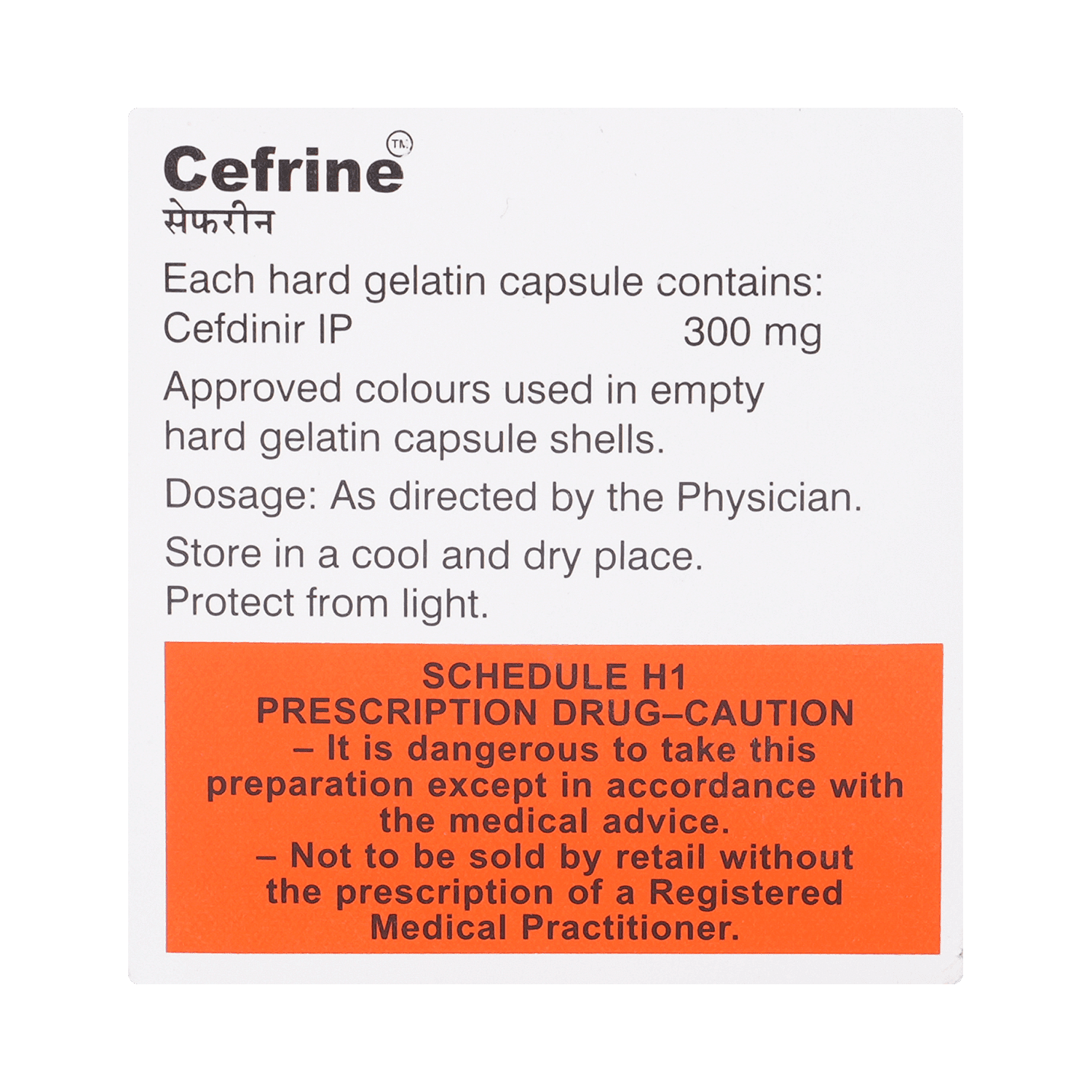
Cefcas 300mg Capsule
Manufacturer
Casca Remedies Pvt Ltd
Salt Composition
Cefdinir (300mg)
Key Information
Short Description
Cefcas 300mg Capsule is an antibiotic medicine used to treat a variety of bacterial infections, including respiratory tract, urinary tract, ear, nasal sinus, throat, and some sexually transmitted diseases.
Dosage Form
Capsule
Introduction
Cefcas 300mg Capsule may be taken with or without food. You should take it regularly at evenly spaced intervals as per the schedule prescribed by your doctor. Taking it at the same time every day will help you to remember to take it. The dose will depend on what you are being treated for but you should always complete a full course of this antibiotic as prescribed by your doctor. Do not stop taking it until you have finished even when you feel better. If you stop taking it early, some bacteria may survive and the infection may come back.
Directions for Use
Take this medicine in the dose and duration as advised by your doctor. Cefcas 300mg Capsule may be taken with or without food but it is better to take it at a fixed time.
How it works
Cefcas 300mg Capsule is an antibiotic. It kills the bacteria by preventing them from forming the bacterial protective covering (cell wall) which is needed for them to survive.
Quick Tips
Do not skip any doses and finish the full course of treatment even if you feel better. Discontinue Cefcas 300mg Capsule and inform your doctor immediately if you get a rash, itchy skin, swelling of face and mouth, or have difficulty in breathing. Diarrhea may occur as a side effect but should stop when your course is complete. Inform your doctor if it does not stop or if you find blood in your stools. Take it with food to avoid an upset stomach. Avoid consuming alcohol while taking Cefcas 300mg Capsule as it may cause increased side effects.
Related Medicines

Sefdin 300 Capsule

Cefrine 300 Capsule

Aldinir 300mg Capsule

Adcef 300mg Capsule

Cefdipar 300mg Capsule

Maxicef O 300mg Capsule

Biocef 300mg Capsule

Resdinir 300mg Capsule

Kefdure 300mg Capsule

Rinicef 300mg Capsule
Frequently asked questions
Is Cefcas 300mg Capsule effective?
Cefcas 300mg Capsule is generally effective when taken as directed by your doctor. Do not stop taking it, even if you feel better, as stopping early may allow the infection to return or worsen.
Can I drink milk while taking Cefcas 300mg Capsule?
Yes, you may take Cefcas 300mg Capsule with milk. It is best taken with food or milk to help prevent stomach upset. If you experience stomach upset after taking the medicine, consult your doctor.
Can the use of Cefcas 300mg Capsule cause diarrhea?
Yes, Cefcas 300mg Capsule can cause diarrhea as it kills harmful bacteria while also affecting helpful bacteria in the stomach or intestines. If you experience persistent diarrhea, consult your doctor.
What if I forget to take a dose of Cefcas 300mg Capsule?
If you miss a dose of Cefcas 300mg Capsule, try to remember it as soon as possible. If it's almost time for your next scheduled dose, skip the missed one and take the next dose. Do not double the dose to make up for the missed one as this could increase side effects.
What should I avoid while taking Cefcas 300mg Capsule?
Avoid antacids containing aluminum or magnesium, iron supplements, and multivitamins when taking Cefcas 300mg Capsule. It's best to take these medications at least two hours before or after taking Cefcas 300mg Capsule.
How long does Cefcas 300mg Capsule take to work?
Cefcas 300mg Capsule usually starts working shortly after you take it, but it may take a few days for the full effect to be realized and symptoms to completely subside.
What if I do not get better after using Cefcas 300mg Capsule?
If you don't improve after finishing the prescribed course of treatment, inform your doctor immediately. If symptoms worsen while taking this medicine, consult your doctor as well.
Can I stop taking Cefcas 300mg Capsule when my symptoms are relieved or when I feel better?
No, do not stop taking Cefcas 300mg Capsule before completing the full course of treatment. Stopping early may lead to a re-emergence of the infection or worsening of symptoms.


